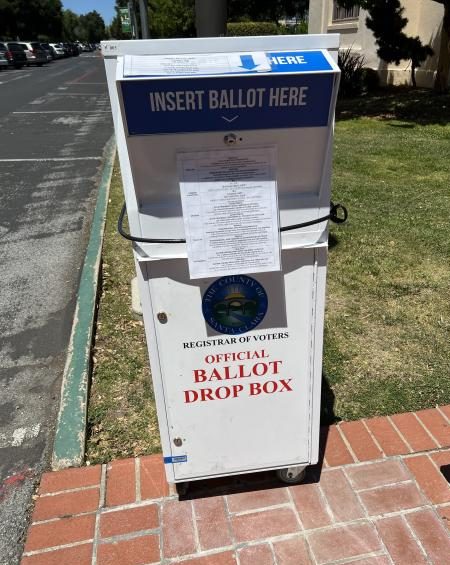Unable to vote, unable to look away
How can teens get involved in midterms without casting a ballot?
Every two years, during election season, politically-engaged teens stare at their screens helplessly, watching numbers tick up. It can often feel difficult to convert political views and a desire for social change into actual action without being able to vote — a frustration many Palo Alto High School students face.
Elizabeth Jensen, a representative of the Palo Alto League of Women Voters, told Anthro Magazine that, even before being able to vote, there are many ways for teens to get involved.
“[Teens can help by] getting the word out, magazines, newspapers, social media, [and] spreading the word about the election,” Jensen said. “You don’t have to be 18 to get involved. You can work in a vote center when you’re 16.”
Another way for students to get involved in elections is to join the League of Women Voters’s Youth Vote Team, a group dedicated to getting young people registered to vote through presentations and other activities at local high schools, Jensen said.
“We have youth in our youth vote team that are helping register students in high schools, helping us table at events, doing voter registration, voter education, spreading the word through social media to get out the vote,” Jensen said.
According to Jensen, one barrier to teens getting informed about and involved in elections is a general sense of overwhelm around the whole election process.
For sorting through candidates and elections, Jensen recommends websites like https://votersedge.org, which shows information about candidates and propositions, and their sponsors, values on key issues, supporters, and more.
The combination of teenagers’ busy lives and a lack of knowledge about how to get involved also causes students to not be able to get as civically engaged as they would like to be, said Jensen.
“I think they [teens] get a bad name for not not caring, but I think they actually do care,” Jensen said. “But I think we make it difficult for young people to get involved.”
